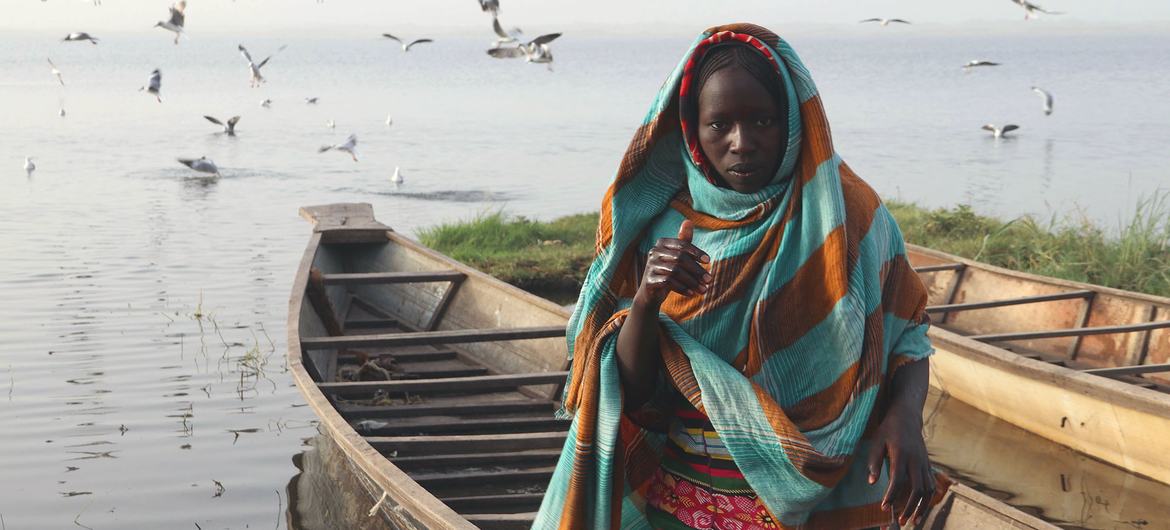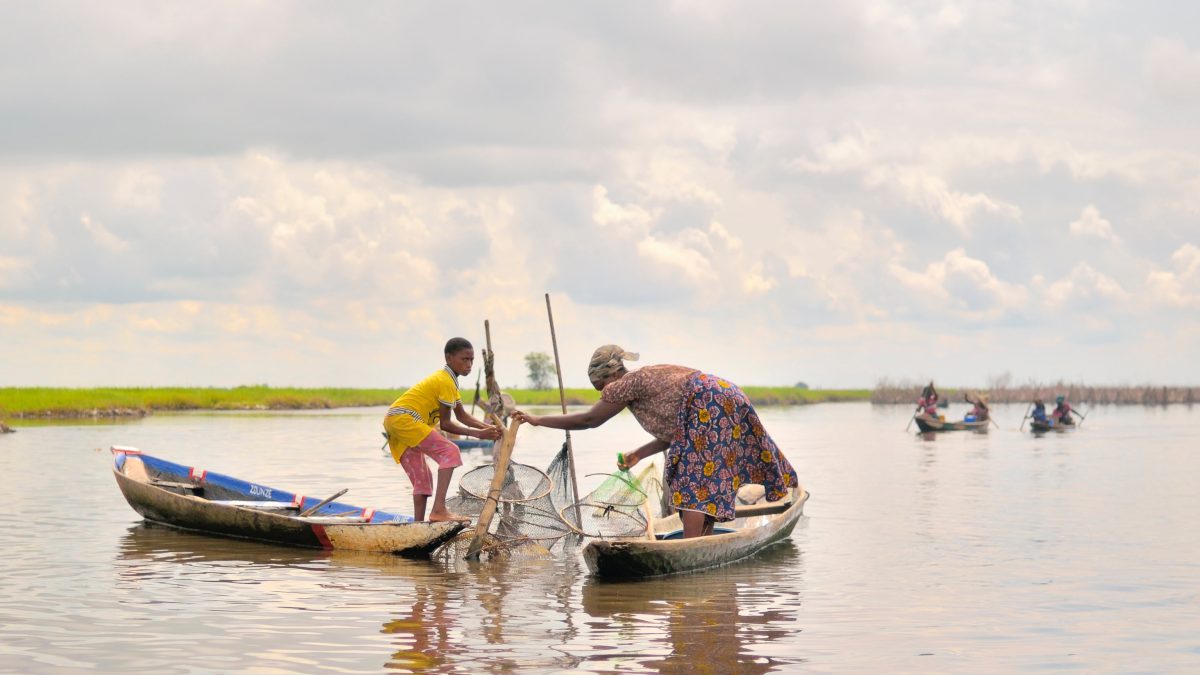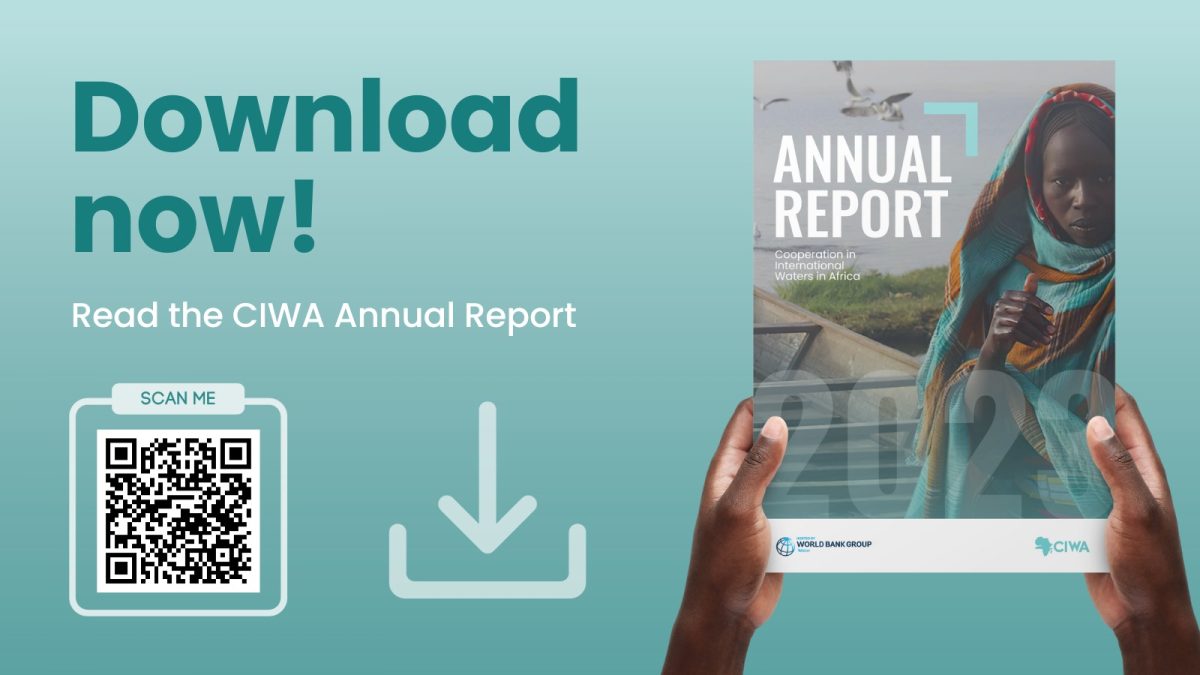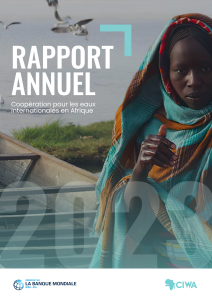The Cooperation in International Waters in Africa Releases its 2023 Annual Report
Posted in : Blog on 11 December 2023
Some countries in Sub-Saharan Africa suffer from too much water. South Sudan, for example, ranks seventh in the world for flood risk. In contrast, countries in the Horn of Africa are facing an intense and lengthy drought, pushing 26 million people into extreme hunger.
This creates profound water insecurity for tens of millions of Africans who depend on rivers, lakes, and groundwater for their health and livelihoods. Climate shocks, economic turmoil, and upheaval from conflict are compounding water insecurity across the continent.
And yet Africa’s water resources offer a huge opportunity for economic growth. That is precisely what the World Bank’s Cooperation in International Waters in Africa (CIWA) program strived to do in the fiscal year that ended in June 2023, as described in its just-released Annual Report 2023—Water Knows No Boundaries: For a climate-resilient and peaceful Africa.

Cooperation is essential because 90 percent of Africa’s water falls within 63 river basins shared by multiple countries. Sustainable, collaborative approaches to managing and developing transboundary waters also reduce geopolitical tensions from competition over natural resources and promote climate adaptation and resilience.
CIWA’s support to transboundary institutions, including river basin organizations (RBOs), and countries align with the World Bank’s new mission of creating a world free of poverty on a livable planet. CIWA’s projects, knowledge generation, and investments contributed to the World Bank’s greater emphasis on sustainability, resilience to shocks, and inclusion to better deliver global public goods.
Enhancing the regional public goods of biodiversity, resilience, and peace and stability
Fragility, conflict, and violence (FCV) weaken resilience, thwart efforts to reduce poverty, degrade the environment, and especially harm women and other vulnerable groups. Armed conflict causes people to migrate, often to communities struggling with water insecurity, which can fuel tensions.
CIWA works in four highly challenging FCV regions: the Horn of Africa, West and Central Sahel, Lake Chad, and the Great Lakes. The program developed an FCV Framework to enable it to identify the drivers of fragility that affect water cooperation, develop mitigation measures based on the fragility drivers, and spur peacebuilding and development.
CIWA is also strengthening climate resilience, including by emphasizing the importance of groundwater to cope with diminishing surface water.
In the Sahel, for example, water availability is expected to decrease by up to 70% by 2100. Climate shocks could force as many as 13.5 million more Sahelians into poverty by 2050 unless urgent climate adaptation measures are adopted. CIWA produced learning notes about groundwater, and its Sahel Groundwater Initiative generated knowledge and improved groundwater management.
People’s livelihoods, whether from fishing, ecotourism, or forestry, depend on thriving biodiversity and ecosystems, but biodiversity in Africa is under threat, with tens of thousands of animal and plant species disappearing from overexploitation of natural resources, climate change, and large-scale agriculture.
CIWA better aligned its projects and technical assistance with biodiversity conservation goals. It identified opportunities at the intersection of transboundary water management and freshwater biodiversity conservation. It also conducted a biodiversity assessment to inform its forthcoming Biodiversity Framework.

Pursuing a regional focus for shared waters
More than 40% of people in West and Central Africa—the world’s poorest region—live below the international poverty line of $1.90 per day, and one-quarter of countries struggle with fragility, conflict and violence.
CIWA helped the region address its water resources knowledge and capacity gaps, emphasized the sustainable management and development of groundwater, and identified investments and policy actions. In a region rife with gender inequality, CIWA fostered equitable inclusion of women in decision- making about water resources.
In East Africa, 11 countries share the Nile River and its basin, with each having ambitious national development plans to fuel economic growth and alleviate poverty. The region also faces food and water insecurity, growing violence and conflict, and climate change impacts.
CIWA’s projects enhanced East Africa’s resilience to climate change and created opportunities for riparian dialogue and hydro-diplomacy.
The worst drought in four decades is displacing millions of people in Ethiopia and Somalia and affecting the entire Horn of Africa. CIWA strived to ameliorate the drought’s cascading impacts, including by improving knowledge about, access to, and management of groundwater and developing regional initiatives to build resilience.
Prolonged drought is also plaguing Southern Africa. CIWA sought to build resilience by addressing cross-border drought risks and promoting cooperative management of shared waters. For example, the Southern African Drought Resilience Initiative equipped the region to be more resilient by developing proactive mechanisms to withstand climate change impacts and associated economic shocks.
Promoting gender equality, enhancing data, and communicating about the benefits of cooperation
In the last year, CIWA launched an innovative Male Champion Forum, in which men commit to encouraging other men to foster more gender-equitable spaces for women’s participation in water management.
Its Water Data Revolution initiative strengthened capacity and provided free or low-cost data analysis tools to institutions that face information challenges when managing transboundary waters.
Finally, CIWA’s communications efforts drove awareness of more sustainable, data-driven, and collaborative management of transboundary waters.
Going forward, CIWA aims to scale its work across the continent, responding to demand from countries and regional institutions that want to improve the management of their shared waters to spur development and economic growth and promote peace and stability.

Learn more
The Annual Report translated to French will be available soon stay tuned!


